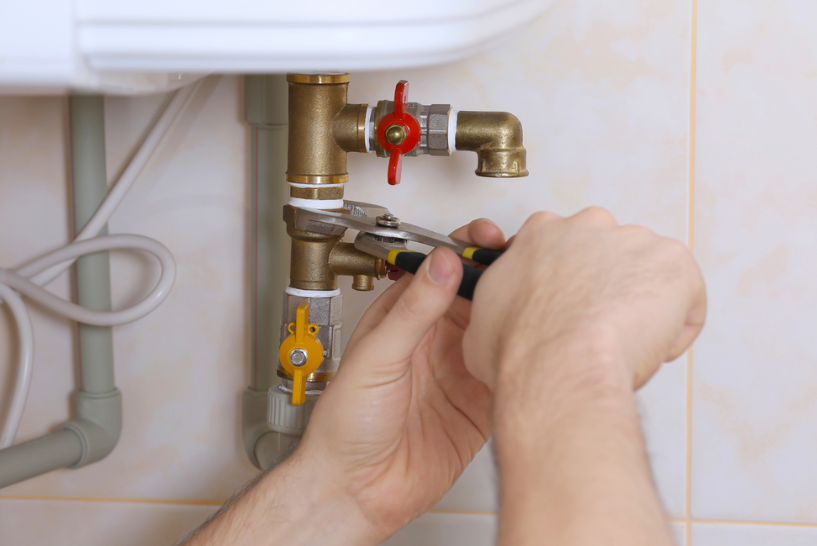Plumbing Preventative Maintenance: A Comprehensive Guide
Routine inspection and maintenance of your plumbing system are crucial to ensuring its longevity and functionality. A well-maintained plumbing system not only saves money on repairs but also prevents costly damages to your home. Here’s everything you need to know about preventative plumbing maintenance and how to implement it effectively.
Why Plumbing Preventative Maintenance Is Essential
Preventative maintenance involves regularly checking and servicing your plumbing system to identify potential issues before they become significant problems. The benefits include:
- Cost Savings: Early detection of issues helps avoid expensive repairs or replacements.
- Efficiency: Properly maintained systems operate more efficiently, conserving water and energy.
- Longevity: Regular care extends the lifespan of plumbing components and appliances.
- Peace of Mind: Prevents unexpected plumbing emergencies.
Key Areas to Focus On
1. Water Heaters
Water heaters are vital for household comfort, yet they are often neglected until problems arise. Routine maintenance can prevent cold showers and increase energy efficiency.
Checklist for Water Heater Maintenance:
- Pressure Relief Valve: Inspect and test for proper functionality.
- Drain the Tank: Remove sediment buildup annually (if recommended by the manufacturer).
- Check for Corrosion: Look for signs of rust or wear on the tank.
- Replace Anode Rods: Worn-out anode rods should be replaced to prevent tank corrosion.
For Tankless Water Heaters:
- Clean the In-Line Screen Filter: Remove debris to maintain water flow.
- Flush the System: Prevent lime and scale buildup by flushing the unit regularly.
2. Garbage Disposal
Garbage disposals are convenient but require regular cleaning to remain efficient.
Maintenance Tips:
- Remove Debris: Fill the unit with ice cubes and a cup of rock salt, then run it for a few seconds to clear buildup.
- Deodorize: Grind lemon peels while running warm water to eliminate odors.
- Avoid Hard Items: Do not dispose of bones, fibrous vegetables, or non-food items in the unit.
3. Drains
Drains handle daily waste from grease, food, and hair, leading to potential clogs and sluggish flow.
How to Maintain Drains:
- Use Strainers: Install drain strainers to catch debris.
- Flush Regularly: Pour hot water down the drain weekly to clear minor blockages.
- Avoid Chemicals: Use natural solutions like baking soda and vinegar instead of harsh chemical cleaners.
Home Service Plans
Many plumbing companies offer home service plans that include annual maintenance and inspections. These plans help homeowners stay on top of their plumbing system’s health.
Advantages of a Home Service Plan:
- Increased Efficiency: Improves water heater and system performance.
- Prolonged Lifespan: Prevents wear and tear, extending the life of plumbing components.
- Emergency Prevention: Detects potential issues before they escalate into emergencies.
Typical Home Service Plan Inclusions:
- Annual water heater safety inspections.
- Full plumbing system checks, including pipe connections and water pressure.
- Recommendations for repairs or upgrades based on findings.
Home Plumbing System Inspection
Scheduling annual inspections is critical to identify problems early and maintain optimal system performance.
Inspection Checklist:
- Toilets: Check for leaks, proper flushing, and signs of instability.
- Sinks: Inspect for water flow issues and leaks around connections.
- Shut-Off Valves: Ensure all emergency shut-off valves are operational.
- Water Pressure: Test pressure levels for consistency.
- Pipe Connections: Look for signs of corrosion, wear, or loose fittings.
- Washing Machines: Examine hoses for cracks or leaks.
- Filtration Systems: Inspect whole-house water filtration systems for effectiveness.
Additional Tips for Preventative Maintenance
1. Regular Cleaning
- Clean faucet aerators to remove sediment and improve water flow.
- Scrub showerheads to prevent mineral buildup and maintain pressure.
2. Address Leaks Immediately
Even small leaks can cause significant water waste and structural damage over time. Repair dripping faucets and leaking pipes promptly.
3. Insulate Pipes
Protect pipes from freezing during cold months by insulating them. Frozen pipes can burst, leading to severe water damage.
4. Monitor Water Usage
Keep an eye on your water bill. A sudden increase may indicate hidden leaks or inefficiencies in the system.
5. Test Water Quality
If your home uses well water or is in an area with hard water, consider installing water softeners or filtration systems to protect pipes and appliances.
When to Call a Professional
While many maintenance tasks can be performed by homeowners, some issues require professional expertise. Call a licensed plumber if you notice:
- Persistent low water pressure.
- Frequent or severe clogs.
- Unexplained increases in your water bill.
- Visible signs of corrosion or extensive pipe damage.
- Unusual noises from your water heater.
Conclusion
Preventative plumbing maintenance is a smart investment that saves money, conserves resources, and keeps your home running smoothly. By focusing on key areas like water heaters, drains, and garbage disposals, and scheduling annual inspections, you can avoid costly repairs and ensure your plumbing system performs efficiently for years to come. For complex issues or thorough inspections, always rely on a trusted professional plumber to provide expert care and solutions.


